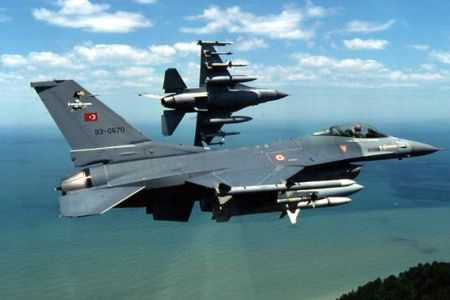ANKARA — Turkey’s largest defense company — Aselsan Elektronik Sanayi ve Ticaret — has successfully developed the country’s first indigenous identification friend-or-foe (IFF) system, and delivered the first prototypes to the Turkish military.
Two prototype electronic systems were delivered to the armed forces last month and mark a “first-time achievement” for Turkey’s local industry, officials and analysts here said. “This puts Turkey into a small list of seven countries that have the capabilities to manufacture IFF systems,” Aselsan CEO Cengiz Ergeneman told reporters.
Aselsan signed a contract with Turkey’s Ministry of National Defense in December 2006 to design, develop and manufacture the prototypes. The contract price for the prototypes is classified.
The company now awaits a fresh contract with the country’s procurement agency, the Undersecretariat for Defense Industries, for serial production. Aselsan officials said a contract could be signed later this year.
The prototypes developed by Aselsan passed a final round of performance tests in November. They will be installed on Turkey’s F-4 fighter jets and air defense radars and, at later stages, other aerial and naval platforms — except F-16 fighter jets.
“The system is entirely indigenous and marks a first time for the Turkish industry,” said Ceyhun Ozguven, an analyst based here. “This is certainly a big leap forward in Turkish military electronics.” A procurement official familiar with the program said the production contract would involve scores of Aselsan IFF systems and could go up to $100 million initially. The number will likely rise as more Turkish platforms queue up to be outfitted.
IFF enables military and national interrogation systems to identify aircraft, vehicles or forces as friendly and to determine their bearing and range from the interrogator. IFF may be used by both military and civilian aircraft. The major military benefits of IFF include preventing “friendly fire.”
Aselsan has developed and produced two IFF prototypes for the Turkish military, both of which are for medium-range coverage. Its transponder IFF systems are to be outfitted on naval and aerial military assets, and the interrogator IFF systems for air defense radars. Aselsan’s two major local subcontractors for the prototype outfitted into an F-4/E 2020 aircraft were privately owned electronics and telecom concern Netas Telekomunikasyon and Bilgem, an information technologies and advanced technological research center of Turkey’s state scientific research institute, TUBITAK.
Aselsan, founded in 1975, is owned by the Turkish Armed Forces Foundation. With more than 4,200 employees, Aselsan operates under four main departments: communication services; defense systems; radar, electronic warfare and intelligence systems; and microelectronics, guidance and electro-optics.
In 2011, Aselsan inked an approximately $1 billion contract to sell low- and medium-altitude air defense systems to the Turkish military. This is the largest single contract awarded to a local company in recent years.
Under that contract, Aselsan is developing all radar, fire control, command-and-control and communications systems for both low- and medium-altitude components of the program. Aselsan also will develop and produce missile heads and data links.
Aselsan’s market value was at $1 billion in 2011, according to independent auditors. It has a backlog of orders worth $4.3 billion until 2018.
In 2011, Aselsan reported 1.5 billion Turkish lira ($880 million) in sales, 160.7 million lira in profits and 83 million lira in exports.
via Top Turkish Firm Develops First Local Friend-or-Foe Gear | Defense News | defensenews.com.





